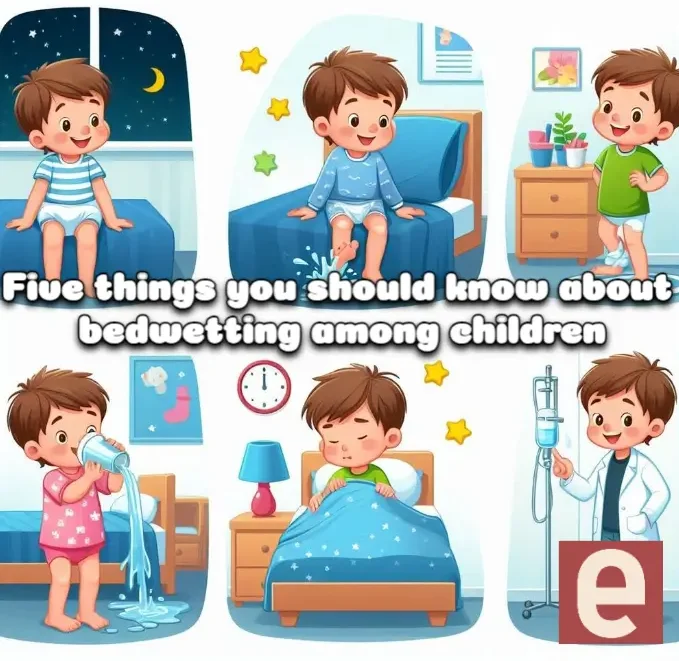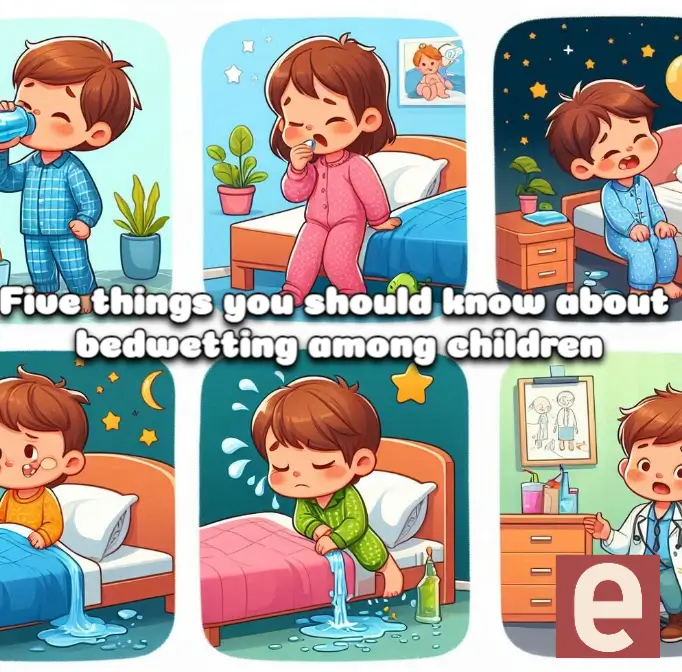Pediatric Nurse Practitioner Jessica Stafford Draper shares a few tips to help parents understand the causes and solutions for bedwetting. Often, changing daytime habits or avoiding certain drinks may resolve bedwetting. Sometimes, however, bedwetting can signify a more serious health problem.
Health expert Jessica Stafford answers several common questions about bedwetting.
Here’s a counterintuitive thought: If your child wets the bed, it might be because bedwetting among children aren’t getting enough water or other fluids.
Kids can easily get distracted and forget to hydrate themselves during the day, according to Pediatric Nurse Practitioner Jessica Stafford Draper, NP, a University of Minnesota Health pediatric urology specialist. This may also occur if they are in school and cannot access adequate fluids during the day. If they go for prolonged periods during the day without drinking, they may get thirsty in the evening and drink more water, which sets the stage for bedwetting. Dehydration also irritates the bladder, which can then lead to increased frequency of urination.
There are many possible causes for bedwetting among children daytime dehydration, which is why parents at their wit’s end seek Draper’s expertise when their child struggles with bedwetting. Here are five things Draper believes parents should know about the topic, known medically as nighttime enuresis.
In most cases, children outgrow the problem.
Roughly one in six children age 5 or younger have a problem with bedwetting. Most children outgrow bedwetting. By age 10, more than nine out of 10 children no longer struggle with bedwetting. This occurs, in large part, because of a maturation issue. As a child physically matures, their brain is better able to interpret and respond to messages from the bladder.
When treating children who experience bedwetting, the goal is to create a regular adult voiding pattern with time and without using fluid restrictions, medication or a bedwetting alarm. These interventions should be viewed as temporary if they are needed.
The problem most likely isn’t serious.
Bedwetting rarely indicates an underlying medical condition. The problem typically occurs because the child’s brain and bladder are still learning to communicate. Some children sleep so deeply that the bladder’s “emergency” signals can’t break through to wake them.
Parents who use a “bedwetting among children,” which detects moisture, often report that children sleep right through the noise. Treatment using the bedwetting alarm can take time, but in the absence of any other medical issues, it is the most successful cure for bedwetting. In such cases, the parent must wake the child, not shut off the alarm. In other instances, Draper may prescribe anti-diuretic medication, which reduces the amount of urine produced by the body overnight.
When the problem is medical, it’s usually not serious. For instance, the child may be constipated, and their entire bowel may put significant pressure on the adjacent bladder. A simple bowel regimen may solve or decrease the problem in such cases.
Bedwetting can sometimes be resolved by changing habits.

To stop bedwetting, Draper recommends limiting beverages with caffeine or carbonation, like soda, because these can stimulate the bladder. Parents can also restrict fluid consumption in the evening if the child doesn’t become dehydrated. Stress can also cause bedwetting in children, so removing stressors from the child’s daily life may also relieve the issue.
It may still be a good idea to see a healthcare provider.
On occasion, bedwetting can be a sign of something more serious, such as sleep apnea, snoring, daytime wetting, urinary frequency, urinary urgency, bedwetting after a prolonged period of dryness or an infection in the urinary tract. bedwetting among children is considered normal in children ages 5 and younger. But if the child continues to have a problem after the age of 6 or 7, and especially if there are other symptoms such as painful urination or oddly colored urine, a trip to the clinic is warranted. Our Erome Health staff takes a comprehensive team approach to health—and our patients have access to a wide range of multi-disciplinary care options.
Bedwetting isn’t anyone’s fault.
Wetting the bed doesn’t mean the parents did poorly with toilet training. Nor does it mean that your child is lazy. The problem may be partly genetic, and even when a lifestyle change is mandated, the factors aren’t always in a parent’s or child’s control. Draper often works with schools to ensure children are getting enough hydration and taking regular bathroom breaks to build habits and develop an improved bladder-brain connection.

